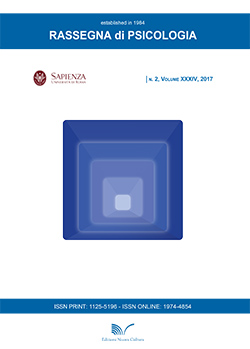Psychopathology and adaptation to environment: Fonagy model compared to Weiss model
DOI:
https://doi.org/10.13133/1974-4854/16671Keywords:
Control-Mastery Theory, adaptation, psychopathology, resilience, epistemic trust, mentalization.Abstract
In the recent transition of Fonagy and collaborators’ thinking, psychopathology results from a lack of resilience which, in turn, results from a lack of epistemic trust, which is an adaptive consequence of the early social learning environment and leads to limitations in the capacity to mentalize and properly evaluate interpersonal situations. The possibility to read psychopathology as the adaptation of the child to traumatic environment is indeed the core of the Control-Mastery Theory (CMT). According to CMT, the child is “wired” from birth to adapt to his reality; to this aim, starting from what he learns from the caregivers, he constructs, by inference from experience, a system of beliefs, more or less reliable, on himself, others, and his social world. Some of these beliefs are pathogenic when they associate an internal (feeling of shame or guilt) or external (departure or loss of the caregiver) danger to the achievement of a healthy and realistic goal. Once again, psychopathology results from an adaptation to traumatic experiences in childhood, but, in this case, the adaptation is mediated by a system of beliefs and, so, by the extreme trust that the child has in his caregivers.Downloads
Published
2017-06-30
Issue
Section
Articles
License
Copyright (c) 2017 Emma De Luca, Martina Rodomonti, Francesco Gazzillo

This work is licensed under a Creative Commons Attribution 4.0 International License.

